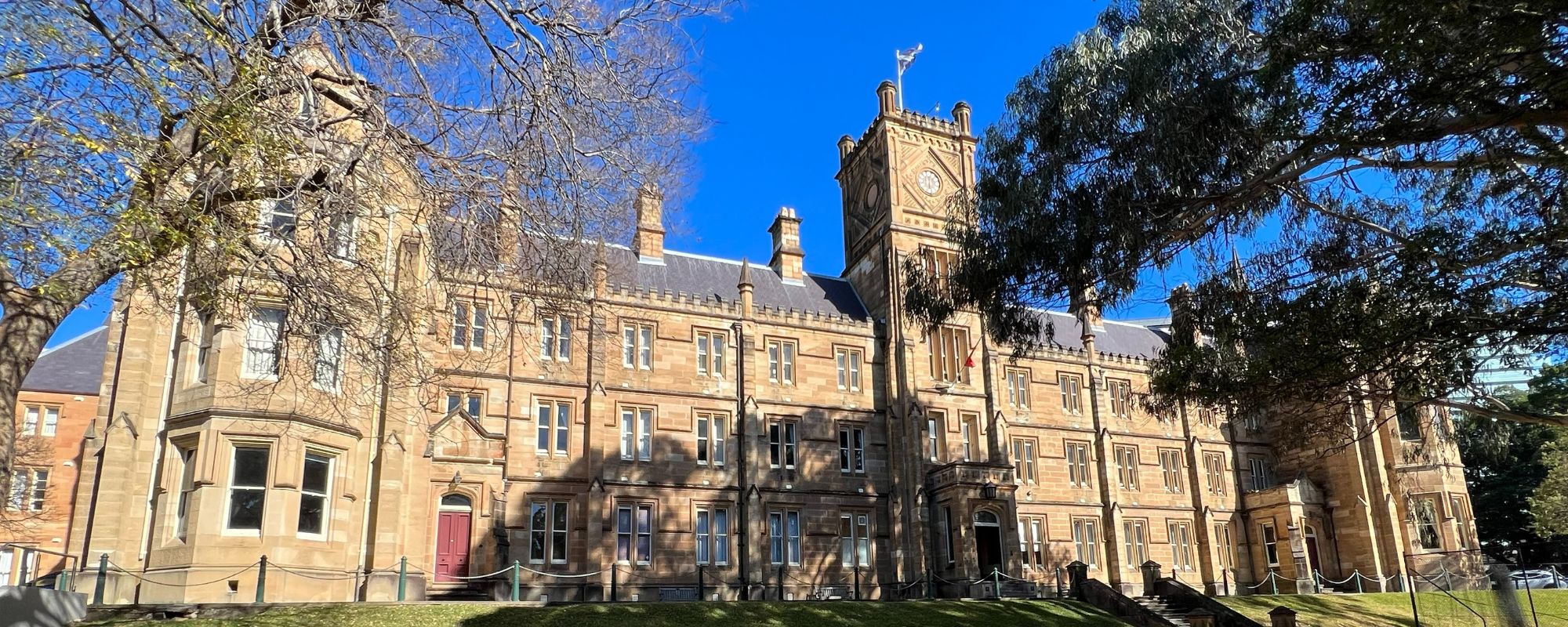Contact Us
Tel: +61 (2) 9565 7300

College Culture
Cultural reflection and renewal is in the DNA of St Andrew’s College. Critically examining and refining culture is something we proactively do on an ongoing basis.
St Andrew’s College has a deep connection to the Scottish Enlightenment. Many of the foundational values and principles fostered by the College are derived from Enlightenment texts. These values include;
- challenging authority that refuses to explain itself;
- actively pursuing human progress; and
- applying critical thinking, logic and reason to solve real world problems.
These principles are reflected in our approach to student-led authority. Demonstrating the power of the St Andrew’s collaborative model, Council, staff and particularly students have worked together to choose and celebrate all that is good about College culture, and challenge and change all that is not. Our students are encouraged to challenge assumptions and indeed authority, while doing so.
St Andrew’s is a welcoming and inclusive community. We seek to educate and challenge each of our students to discover and develop the extent of their personal excellence in its many forms – after all, the ‘whole person’ is the whole point. The expectation is that the Andrew’s experience will help to shape a life of contribution and meaning for the betterment of the nation and the world.
We are proud to support and celebrate inclusiveness and diversity, and cherish respectful relationships between equals. The friendships that form here become ties that bind us for life, and help to form a valued and enduring community of Andrew’s men and women. That sense of belonging, of making lifelong bonds in this living and learning community where friendship and fun are never far away, is a recurring theme of both our current students and our alumni.
The $2 million per annum in bursaries, scholarships and prizes, including those that provide support on a means-tested basis, means we can welcome exceptional young people with talent and potential, regardless of their economic circumstances.
Maintaining a gender balance is a crucial element of the College, and our long-standing commitment to those from rural, regional and remote areas helps to shape our diverse culture. The expanded non-residential program also allows a greater cohort of students to contribute to the richness of the St Andrew’s experience.
Our mission is simple in theory;
“We want to preserve the cultural richness and traditions that make the College experience so memorable and life-changing for students, while ensuring that everything that takes place within our walls is in alignment with contemporary community standards and values.”
“Tradition is not the worship of ashes, but the preservation of fire.” Gustav Mahler
Across the tertiary sector, there have been different views expressed on how such alignment should be achieved. Some institutions restrict the adult privileges of university aged students, in a bid to mitigate risk. For example, some organisations operate with the view that dry colleges and curfews are the best ways of regulating culture.
The philosophy at St Andrew’s College is driven by the reality that our students are emerging adults, and not boarding school pupils. We believe that it is the College’s responsibility to facilitate opportunities for young, often impressionable, high school leavers to reflect on and challenge – not tacitly assimilate – negative cultures. This could be framed as ‘preparing the student for the road, not the road for the student’.
Our approach has two core elements. First, we work collaboratively with students to define our cultural goals and design programs with the potential to achieve these goals. And second, we engage relatable people – including trained students – to run our programs. The power of peer-led training should not, in our experience, be underestimated.
Our Education & Student Life team recently launched an initiative that was co-designed with the student leaders and expanded our already comprehensive Leadership Program by adding ‘cultural competency modules’ to it. One new session entailed trained student leaders running workshops for their peers on challenging scenarios that might arise in College. Another involved getting an external youth organisation (Elephant Ed) to run small-group, interactive workshops on the consent reforms being rolled out in NSW. We also heard from Jess Hill (author and presenter of the SBS series, Look What You Made Me Do), on gendered violence, and Ashley Gurney on excessive drinking.
What all of our sessions have in common is that they are not box-ticking exercises.
We hope that each program provokes reflection and, in many cases, changes hearts and minds.
